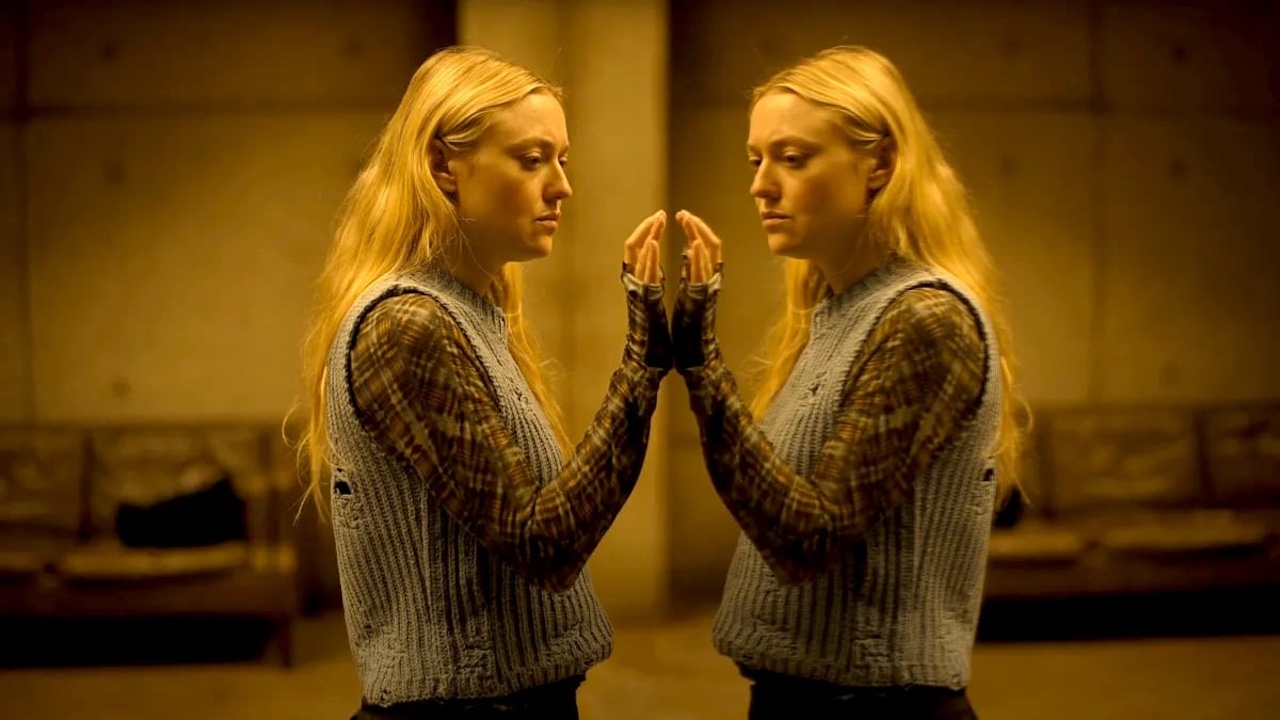The Watchers brings together four strangers in the ancient forests of Western Ireland for a test of will and a battle with otherworldly forces. This is the kind of logline that 90-minute thrillers were made for—short, sweet, and compelling with none of the baggage of the current slate of bulky late-spring epics. It’s also just the kind of feature you’d expect Ishana Night Shyamalan (daughter of M.) to take on for her debut feature, in many ways keeping in lockstep with her most prominent work to date on Apple TV’s scintillating but uneven series The Servant. When it embraces the intensity, anxiety and, frankly, the absurdity of its premise, The Watchers is exactly the kind of movie you want it to be, but when it doesn’t, it can begin to crumble under its own weight.
Based on the 2022 novel of the same name by Irish writer A.M. Shine, The Watchers is, at least at its start, primarily focused on Mina (Dakota Fanning), a young wayward artist staring into the middle distance while making a meal out of her vape pen. Mina, we gather, is troubled. By what, you might ask? Trauma, of course. Early on you can feel the film begin to split in two: On the one side you have Shyamalan diligently working to establish a mood, the perpetual gloom of the Irish forest serving as wonderful shorthand for the dreadful beauty and aged mysticism at the film’s center. On the other hand, you have hasty character development, tracking Mina as she first wanders into the forest and becomes trapped in its mysterious web, slowly spoon-feeding us backstory with some of the clunkiest dialogue you’ll find this side of a Netflix movie of the week. The film seems to hope this shorthand will explain the main character in her entirety, making her trauma her whole being, but all it does is flatten her to mere buzzwords and flashbacks, robbing us of anything real and immediate to care about.
Shyamalan’s debut, like the great films of her father, is an absolute high-wire act of concept and execution. Much of the film’s second act is spent explaining the stakes of Mina’s new reality, which finds her trapped in a sort of glass house (deemed “the coop”) with three strangers who have strict rules for living within its walls and no clue what’s really going on. All they do know is that every night they’re visited by creatures of the forest—the titular “watchers”—who make blood-curdling noises but do little else to threaten the foursome. The other three inhabitants serve their purpose—Ciara (Georgina Campbell) as the lovelorn, kind-hearted soul; Daniel (Oliver Finnegan) as the cheeky bastard; Madeline (Olwen Fouéré) as the wise elder—predictably forming and breaking alliances as the pressure mounts. Though these performances are decidedly mixed, they mostly at least achieve their goal of moving the plot forward.
When it embraces the intensity, anxiety and absurdity of its premise, The Watchers is exactly the kind of movie you want it to be, but when it doesn’t, it can begin to crumble under its own weight.
That said, the movie is really all about Mina. Even as this section of the film is clearly its most compelling, the tension becomes sapped whenever the film tries to link Mina’s personal turmoil with what is ultimately a story about fairies and demons. If anything, the finale—surprising (and, yes, twisty) as it may be—braids these two ideas even further, attempting to wring metaphor out of frantic story beats that feel placed there specifically to heighten the importance of a story that doesn’t fit such lofty goals.
Which is a shame, because there are some genuine moments of discomfort throughout, made so by, among other things, impressively restrained direction, inventive character design, and a properly batshit story. It’s as if someone along the production line worried that a thriller that didn’t aim to do anything but frighten and entertain wasn’t worth it, and that the only way to raise the ceiling was to make it about something in the laziest way possible. “I am not a good person,” shouts Mina toward the film’s conclusion, a line that only really tells us one thing about the character and movie in question—and it isn’t nearly as compelling as they seem to think.







